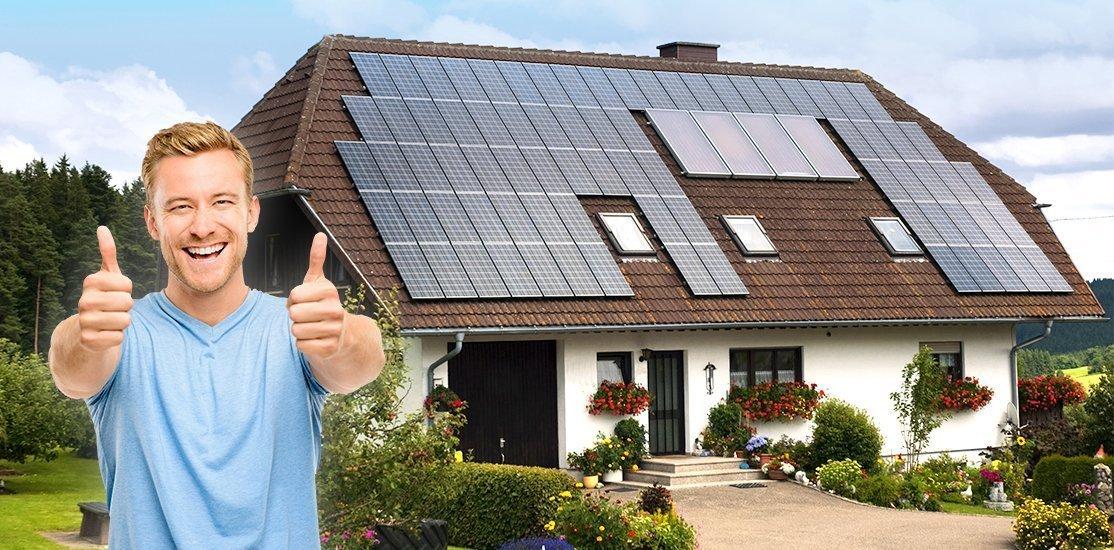Powering Your Home on a Budget: Top Affordable Solar Energy Options for Homeowners
- Mister siswa
- 2023 March 06T23:21
- Energy

With energy costs on the rise, many homeowners are looking for ways to cut their monthly expenses. One of the most effective ways to do so is by investing in solar energy. However, the initial cost of solar panels can be daunting. In this article, we will explore the top affordable solar energy options for homeowners who want to power their homes on a budget.
Understanding Solar Energy
Before we dive into the various affordable solar energy options available, let's first understand how solar energy works. Solar panels consist of photovoltaic (PV) cells that convert sunlight into electricity. When the sun hits the panels, the PV cells generate direct current (DC) electricity. An inverter then converts the DC electricity into alternating current (AC) electricity, which is what powers your home.
Types of Solar Panels
When it comes to solar panels, there are two main types: monocrystalline and polycrystalline. Monocrystalline panels are made from a single crystal of silicon, making them more efficient but also more expensive. Polycrystalline panels are made from multiple fragments of silicon, making them less efficient but also more affordable.
Top Affordable Solar Energy Options
- Community Solar
Community solar allows multiple homeowners to invest in a single solar array, reducing the overall cost for each participant. This option is ideal for those who don't have the space or resources for their own solar panels.
- Solar Leasing
Solar leasing is a popular option for those who don't want to invest in solar panels upfront. Instead, homeowners can lease the panels from a solar company and pay a monthly fee. This option allows homeowners to save money on their energy bills without the high initial cost of purchasing panels.
- Solar Loans
Solar loans are another option for those who don't want to pay for solar panels upfront. These loans allow homeowners to finance their solar panel purchase and pay it off over time.
- DIY Solar Panels
For those who are handy and want to save even more money, DIY solar panels are an option. This option requires some technical skill and know-how, but it can be a cost-effective solution for those willing to put in the effort.
Factors to Consider
When choosing an affordable solar energy option, there are several factors to consider:
- Cost: How much can you afford to spend upfront? What is the monthly cost of the option you choose?
- Space: Do you have enough space for solar panels? If not, can you participate in a community solar program?
- Maintenance: How much maintenance will your solar panels require? Do you have the time and resources to maintain them?
- Efficiency: How efficient are the panels you choose? Will they generate enough electricity to meet your needs?
- Rebates and Incentives: Are there any rebates or incentives available to help offset the cost of your solar panels?
Conclusion
Investing in solar energy is a smart choice for homeowners who want to save money on their energy bills. With the various affordable options available, there is a solution for every budget and every homeowner. By considering factors such as cost, space, and efficiency, you can choose the option that is right for you and start powering your home on a budget.
FAQs
-
Do I need to live in a sunny climate to benefit from solar panels? No, solar panels can still generate electricity in cloudy or overcast conditions, although they will produce less than in direct sunlight.
-
How long do solar panels last? Solar panels can last up to 25-30 years with proper maintenance.
-
Will installing solar panels increase my property value? Yes, studies have shown that homes with solar panels have a higher property value and sell faster than homes without solar panels.
-
Can I install solar panels myself? While DIY solar panel installation is possible, it requires technical skill and knowledge. It is recommended to hire a professional installer to ensure the panels are installed safely and efficiently.
-
How long does it take for solar panels to pay for themselves? The payback period for solar panels varies depending on several factors, such as the cost of electricity in your area, the size of your solar panel system, and the financing option you choose. On average, it takes about 7-10 years for solar panels to pay for themselves in energy savings.
Read more:
- A Comprehensive Guide To Energy Assistance Application
- Energy Conservation Techniques
- Going Green A Step By Step Guide To Switching To Solar Energy At Home
- Powering Your Home On A Budget Top Affordable Solar Energy Options For Homeowners
- Understanding Solar Energy And Getting Started With Solar Energy
- What Is Geothermal Energy And Advantages Of Geothermal Energy